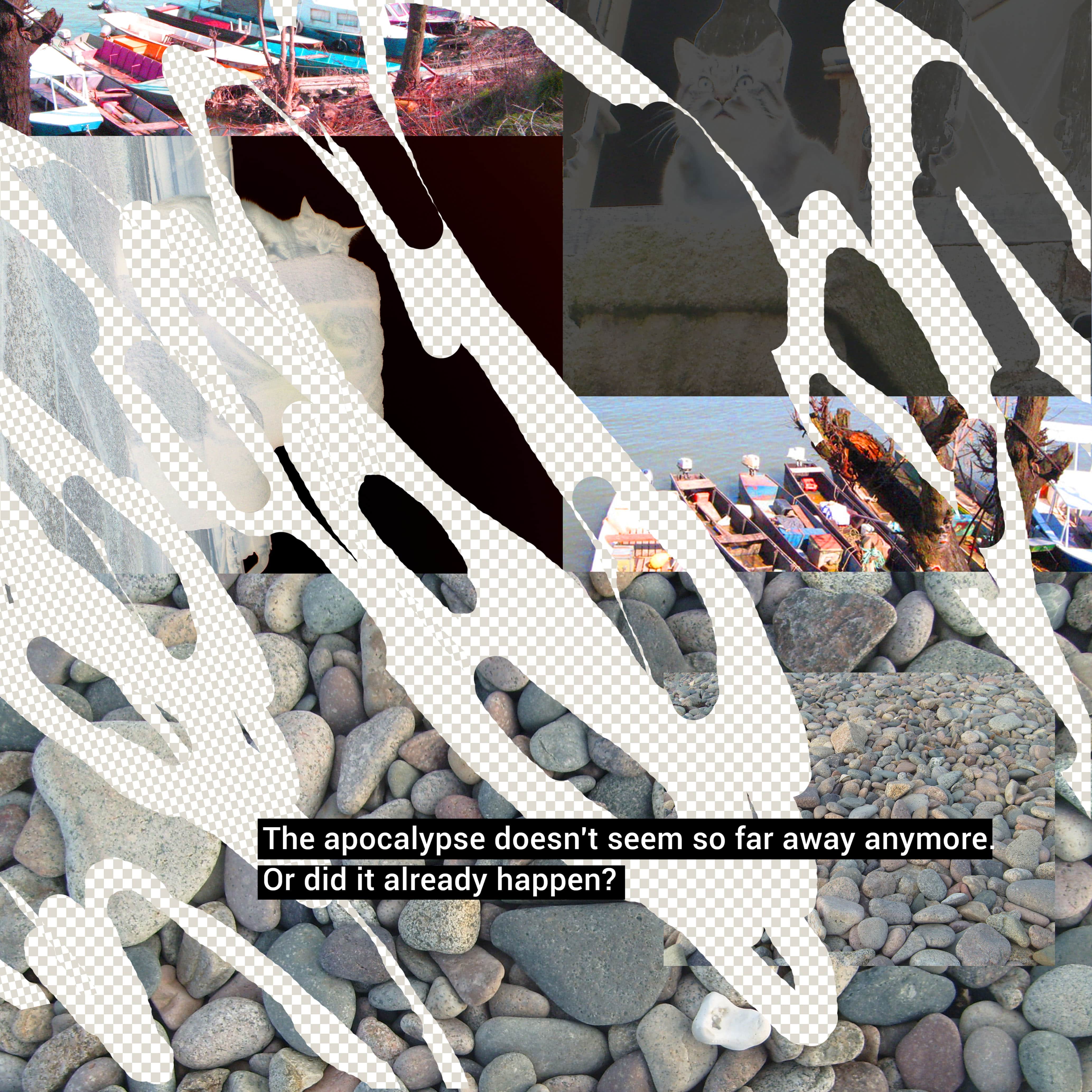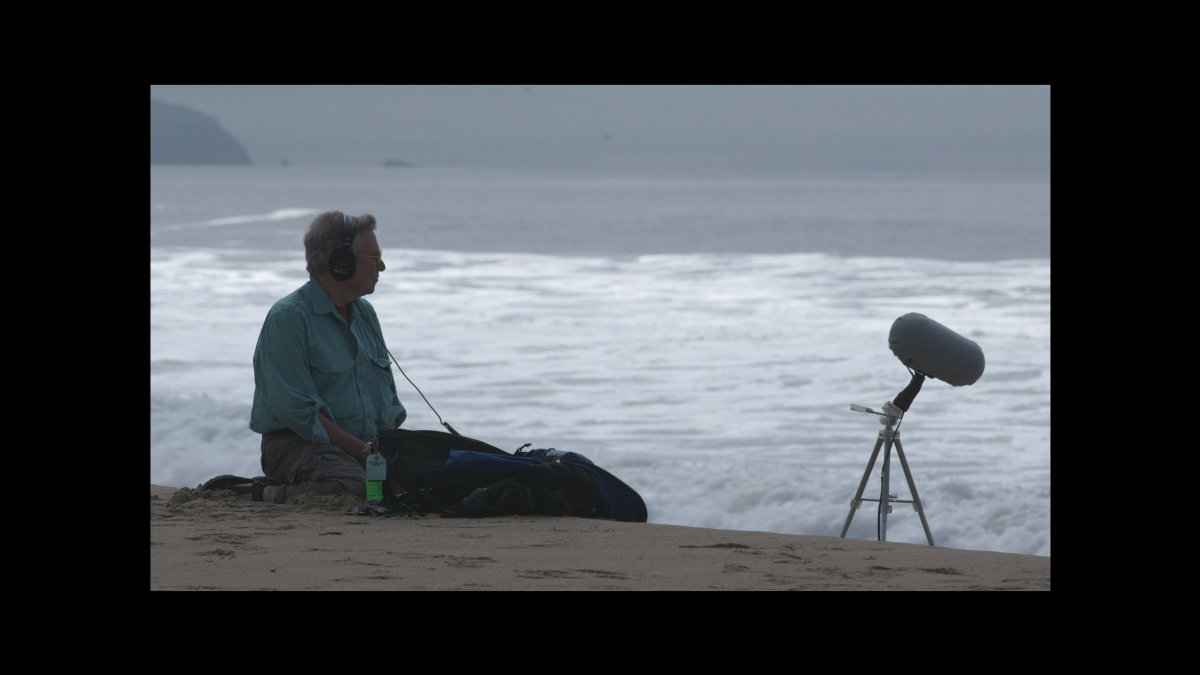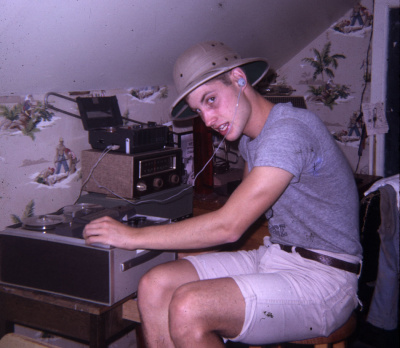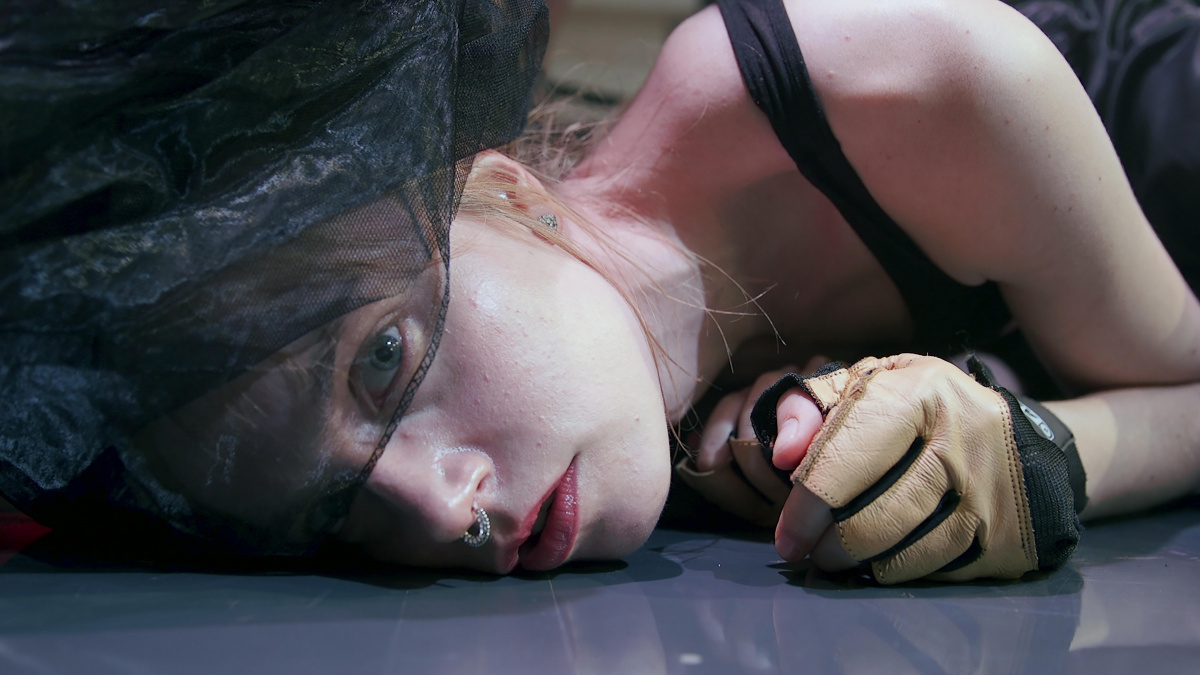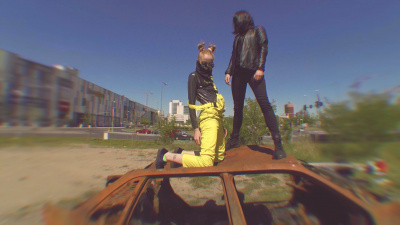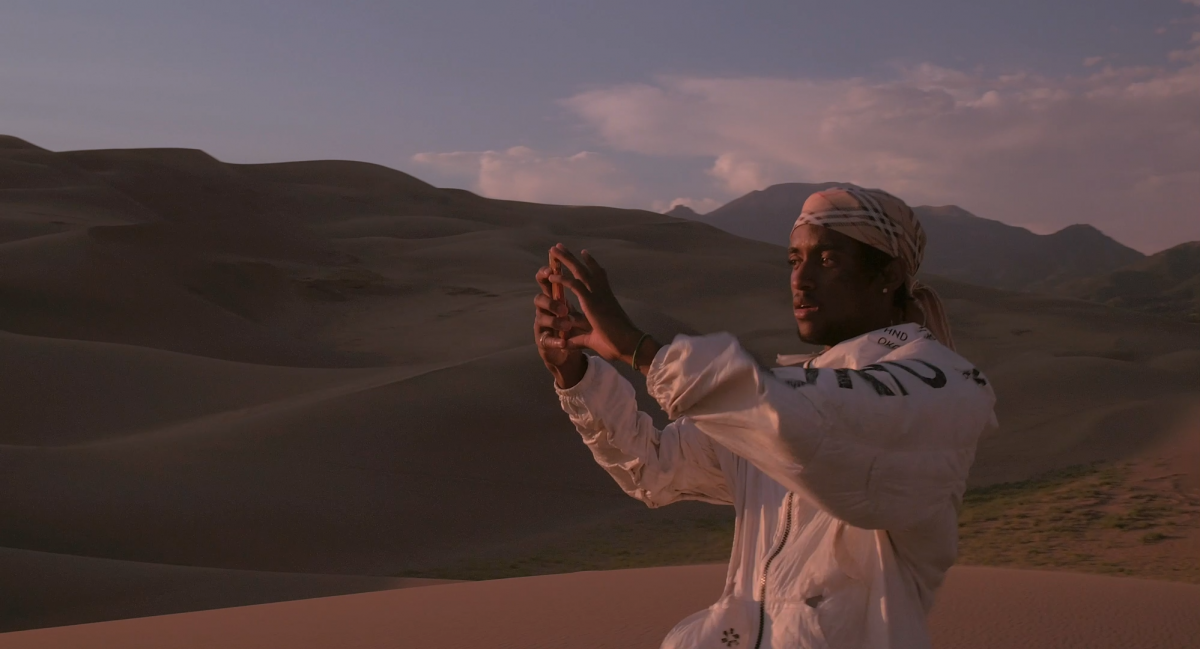
Underneath It All
Marnie Ellen Hertzler’s docufiction Crestone reflects the digital world, longing for community on one side and the perpetual online Self on the other. Daniela Seitz looks beyond the isolation of the internet and the pessimism of the pandemic era to find renewal and hope.
→ Check all articles of this special
→ Download PDF with introduction and table of contents
Crestone describes itself as «a love letter», addressed to no one in particular. The film touches on collective consciousness in a pessimistic and unsettling time marred by climate crisis and global pandemic, isolation, and «end time» attitudes. The apocalypse doesn’t seem so far away anymore – or did it already happen? – and it brings both the threat of collapse and a chance for new beginnings. While we spent most of the year limited to screen-only connections, communities transcend online, and our digital selves are continuously being shaped, tested, and mirrored by technology.
The Existential Melancholy of Deadgod
In her docufiction, Marnie Ellen Hertzler artistically reflects the digital world, and raises questions about the longing for community on one side, and for the perpetual online Self on the other. She visits a group of young SoundCloud rappers who, isolated in the American Colorado desert, seek new meaning in life. They call themselves «Deadgod», and are played by the Baltimore filmmaker’s non-actor high school friends. Musicians, tattoo artists, and performers, they reflect Hertzler’s interest in the existential melancholy and loneliness of internet youth.
Poetic sentiments are invoked in one-on-one conversations, wandering through the musical abundance of online culture, underscored by the craving for a place to just «be». The idea of the controlled, representational image is explored in gauzy, pastel-colored drone footage, cheeky 3D rendered animations, and a meditative soundtrack by Animal Collective. It’s in these places of abandonment – the desert, the highlands, the end of the world – that the Deadgods try to create a microcosm of creativity and spirituality; an alternate reality of escape. Transporting the viewer to a world of outsiders who fail daily and couldn’t care less, Crestone shows how we constantly destroy ourselves – but leaves room for recovery in a communal setting.
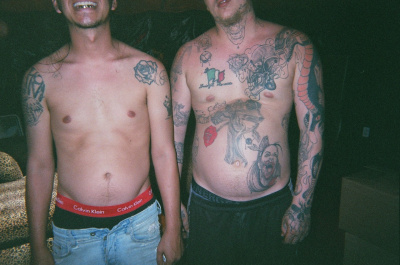
Virtual and Real Communities
Expressing a yearning to understand others while thinking about nurture and renewal, the film reminds us to look beyond the apparent narcissism of online culture, and the blurred line between the virtual and real. Creating a local community takes more time, energy, and commitment. But the experience of making music with friends, going on hikes, and interacting with strangers on the road is usually more rewarding in terms of social interaction. On the other hand, online spaces allow for global communities, and empower those who aren’t able to experience these ties in real life. And, as the pandemic has made the future of social encounters unimaginable without screens, we must find new forms of solidarity to fight against it. In our physical isolation, we are called to rediscover the transformative power of mutual care within the digital realm. Rethinking and questioning what’s at stake when the Self is the product, it is more important than ever to unlearn established modes of online behavior, and reflect on how the internet echoes existing systems of oppression.
The virus – a brutal reality check for humankind – offers the chance to practice empathy, especially towards those who are suffering the most from its impact due to global inequalities and systemic racism. Empathy means recognizing fragility and opening up to others. And while the pandemic has disrupted how we function as a society, that fragility is part of our common effort to develop a social consciousness and collective future – a reminder of the possibility of new beginnings beyond our self-curated screens.
The film «Crestone» by Marnie Ellen Hertzler was officially selected at the Norient Film Festival NFF 2021. See full program here.
This text is part of Norient’s essay publication «Nothing Sounds the Way It Looks», published in 2021 as part of the Norient Film Festival 2021.
Bibliographic Record: Rhensius, Philipp. 2021. «Editorial: NFF 2021 Essay Collection.» In Nothing Sounds the Way It Looks, edited by Philipp Rhensius and Lisa Blanning (NFF Essay Collection 2021). Bern: Norient. (Link).
Biography
Published on January 18, 2021
Last updated on April 09, 2024
Topics
From Muslim taqwacore to how the rave scene in Athens counters the financial crisis.
A form of attachement beyond categories like home or nation but to people, feelings, or sounds across the globe.
Snap
